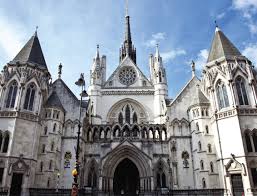By Libya Herald reporters.

London and Tunis, 14 October 2016:
The Libyan Investment Authority has not ruled out an appeal after a London judge dismissed its $1.2billion claim against Goldman Sachs over the total collapse of high-risk derivatives investments
In a 68,000 word judgement, Mrs Justice Rose ruled that the US investment bank had not misled the LIA about the risks involved and had not used undue influence in order to secure deals from which it reaped some $200 million in profits while the LIA lost everything.
The case involved nine trades between January and Aril 2008 in which Goldman Sachs structured two investments in the American bank Citigroup, three in Electricite de France as well as trades in Banco Santander, Allianz, ENI and UniCredit. At the time the global financial markets were going in to meltdown and bank shares were plunging. The court heard that the LIA believed that the markets would recover and that when the trades matured in 2011, prices would have rebounded and the Authority would reap a handsome profit. But instead the shares continued to fall and the positions that Goldman had bought for the LIA became worthless.
In the London High Court the LIA’s lawyers claimed that in 2007 the recently-formed Authority had some $30 billion in cash to invest and had little idea how to set about the job. So unsophisticated were many of the staff that when these huge derivative trades were made by Goldman, it was not appreciated that the LIA was not in fact buying actual shares but a synthetic product created by the US investment bank.
The judge said that she doubted that LIA investment analysts and traders were as naïve as they claimed but agreed that there had been some confusion within the LIA as to what was actually being done with the nine disputed trades. Decision-making power, she concluded, rested with the LIA’s chairman and chief executive Mohammed Layas and his deputy Mustafa Zarti. Lyas died last year and Zarti did not give evidence at the trial.
Justice Rose said that Lyas, a former head of Bahrain-based Arab Banking Corporation in which Libya is a major shareholder, should have been expected to understand derivative markets even though he had not been a trader himself. A key point in the LIA case was that Lyas had told the LIA’s board of directors that the $1.2 billion was being used to buy shares. However the judge concluded that Lyas had been seeking authorisation for an investment of that sum and had not bothered to explain that in fact it would be derivatives, not physical shares on which the money would be spent.
The court heard that Mustafa Zarti, who had worked for the Libyan Arab Foreign Bank, had a short attention span to go with a short temper and did not like to read long documents. Zarti had been the main link to Goldman Sachs, dealing in particular Youssef Kabbaj, an executive director and member of Goldman’s “coverage team”. Kabbaj, who left Goldman’s claiming he was owed $9 million in bonus, also did not give evidence.
The LIA claimed that Kabbaj had won undue influence over it, treating its executives to expensive entertainment, including flying them to Morocco and on occasion providing prostitutes. In particular, Kabbaj had organised a Goldman Sachs internship for Zarti’s younger brother Haitem who was not qualified to win such a coveted job. The court heard that Goldman personnel managers queried Haitem’s position but were told that the LIA was thinking of opening a London office which Haitem might be leading. Kabbaj said that it was important that Haitem should get to know the Goldman people in London so that he would think of them first when new business came up.
One of the key LIA witnesses was an Australian lawyer Catherine McDougall, seconded to the LIA by Allen & Overy in London between July and August 2008, after the disputed Goldman trades had been completed. Justice Rose said that working closely with Mustafa Zarti and the LIA’s equity team, McDougall began to “push back” against the influence of Goldman within the LIA, for instance querying why an International Swaps and Derivatives Association master agreement had not been provided and drawing up one herself. In a written pre-trial statement McDougall has said that when she asked one of the LIA team if due diligence had been done on the Goldman trades, she was asked “due what”?
The judge said she thought Dougall was an honest witness but believed her views had been coloured by her friendship and affection for the equities team and the antipathy she had formed for Goldman. Justice Rose rejected the LIA’s contention that its people lacked financial expertise and pointed out that they had overseen complex trades with other financial institutions. She also dismissed documents in which Goldman executives commented on the LIA’s experience, including one which said “They are very unsophisticated – and anyone could ‘rape’ them”. These phrases, she said, were being taken out of context.
Her judgement did not include any award of costs. The LIA said tonight that it was studying the ruling before it decided what to do next.
The LIA is pursuing a separate London action against the French bank Societe Generale over a similar $1.5 billion derivatives deal that also went sour. That case, due to be heard in 2017, is expected to include claims of bribery and influence peddling.







